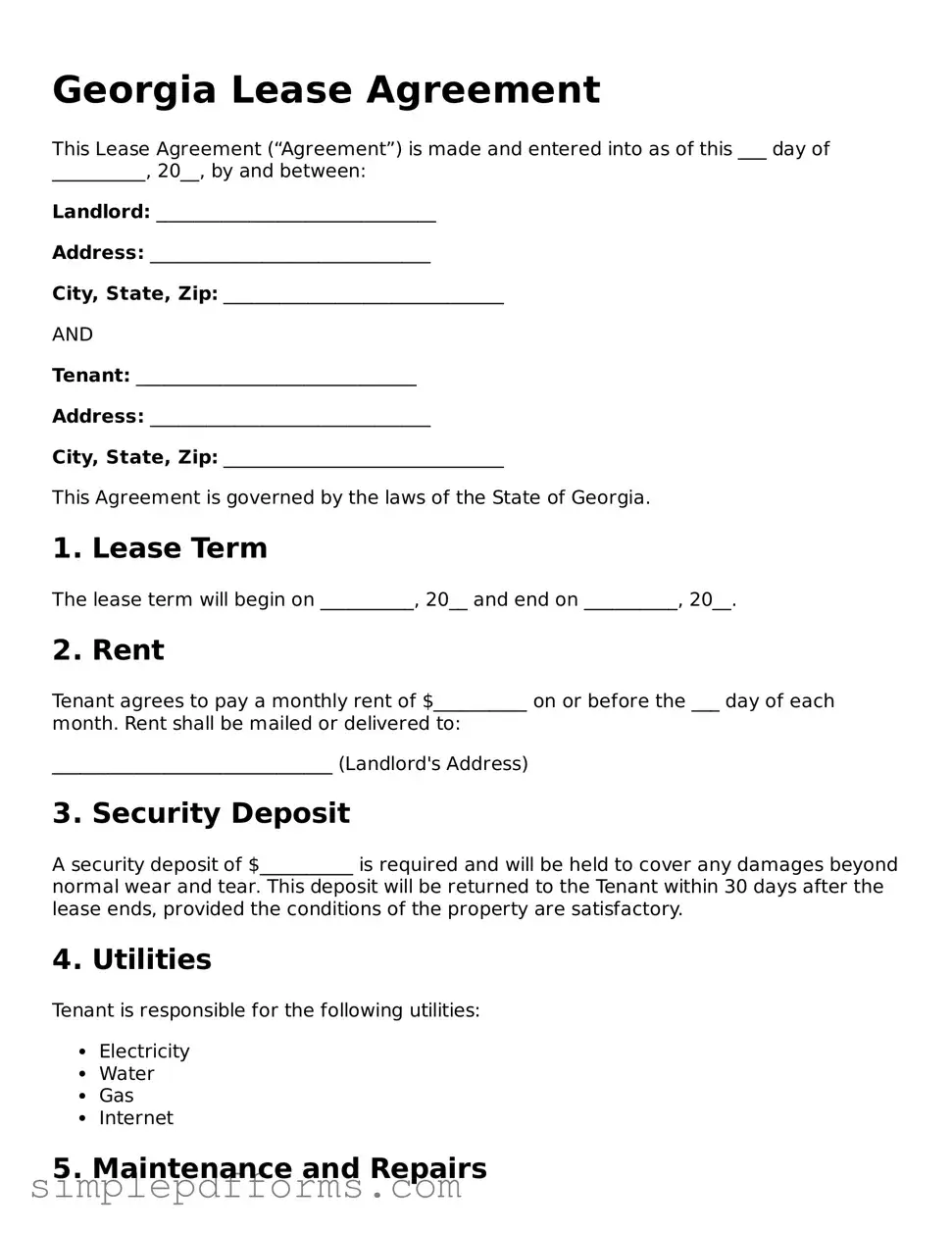Attorney-Verified Lease Agreement Document for Georgia State
A Georgia Lease Agreement is a legal document that outlines the terms and conditions between a landlord and a tenant for renting residential or commercial property in the state of Georgia. This agreement serves to protect the rights of both parties while detailing their obligations. Understanding this form is essential for ensuring a smooth rental experience and avoiding potential disputes.
Open Lease Agreement Editor Now

Attorney-Verified Lease Agreement Document for Georgia State
Open Lease Agreement Editor Now

Open Lease Agreement Editor Now
or
Get Lease Agreement PDF Form
Your form is waiting for completion
Complete Lease Agreement online in minutes with ease.